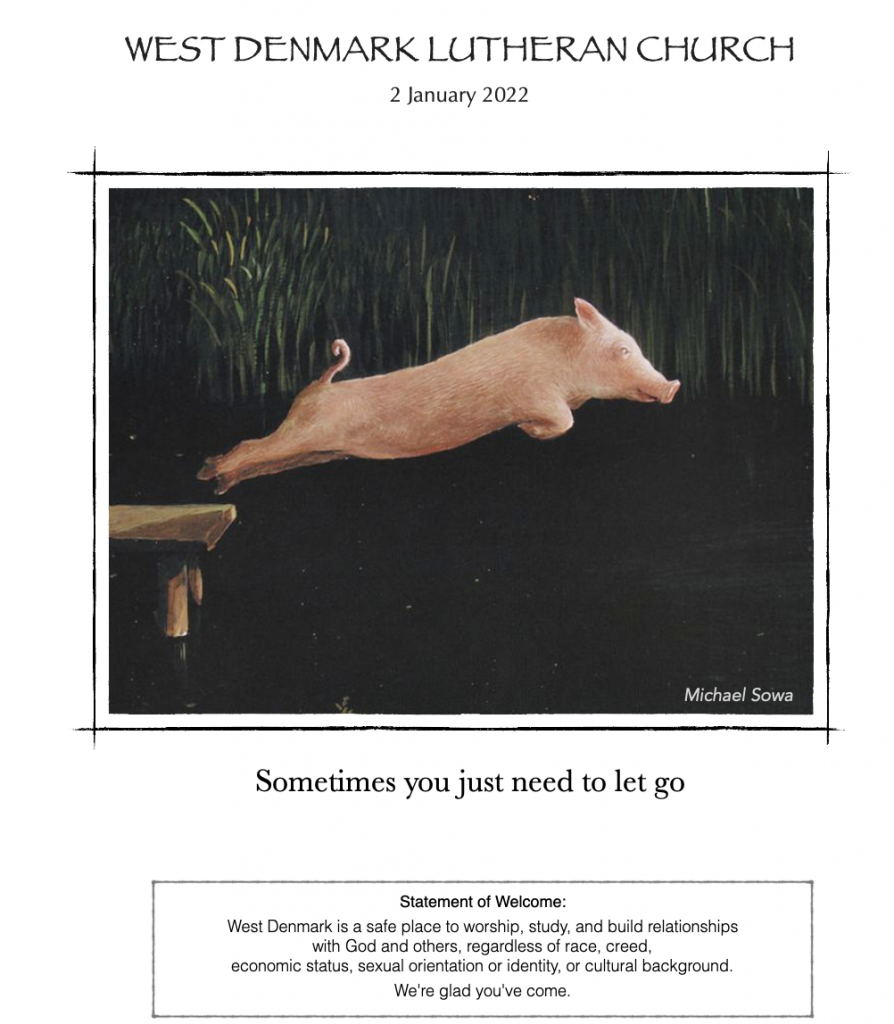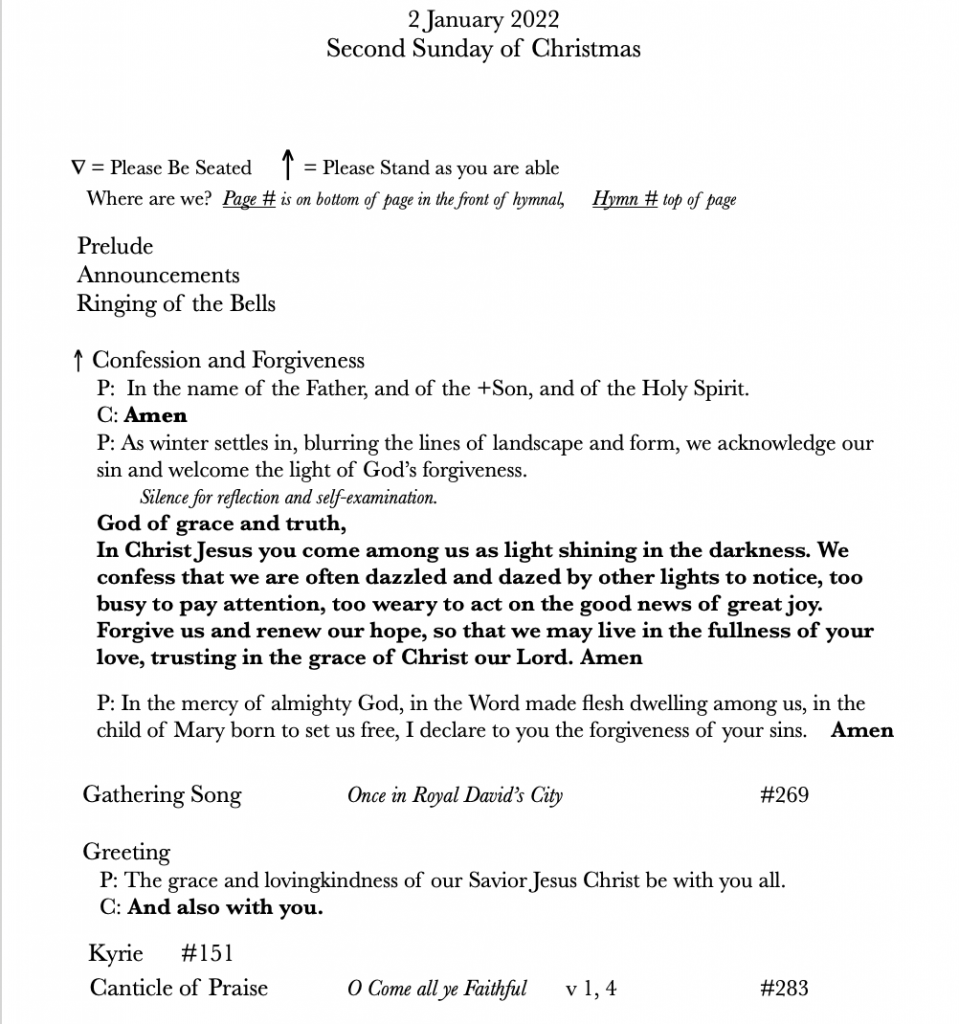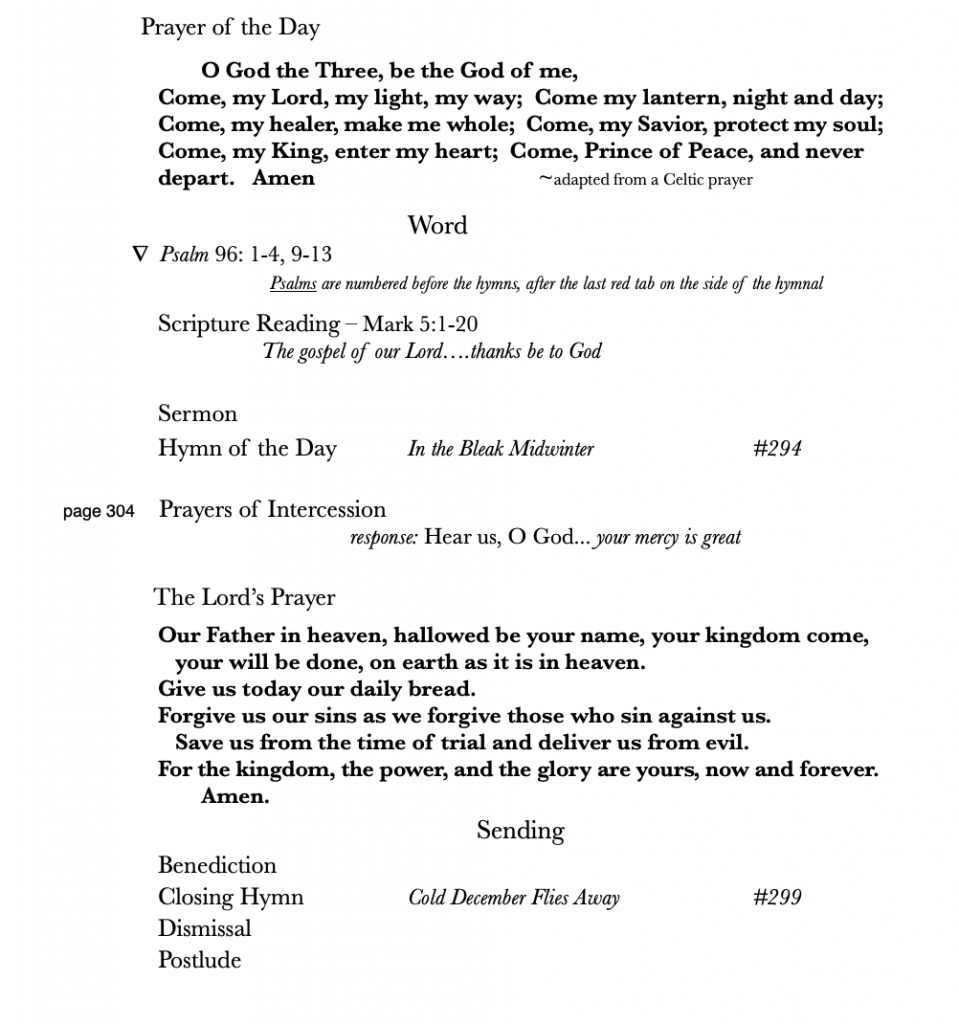Audio Recording



It’s a new year. Barely. We are here, poised with a hand on the title page of a new chapter in our individual and collective lives, the last one still fresh in our minds. We can picture the big developments of previous chapters and turn our imagination toward where the plot could take us looking ahead. In novels, we hardly pause, eager to read on. In life, we do pause. Looking back gives a chance to see the past year in perspective – to highlight the good things, to make meaning of the hard times we endured, to remember conversations and faces. The forward view might already have an outline, but it still needs to be written – there’s a sense of possibility and foreboding, potential and fear as we peer into the future.
Those dynamics make an inviting novel, but they give January a sense of gravitas not associated with the other months of the calendar. What will this new year bring? What changes and challenges and disappointments and opportunities await us? It’s pointless, I suppose, but still kind of fun to conjecture, to play Nostradamus, and write a list of predictions – politically, or relating to the pandemic, or your favorite sports teams, or circle of friends, or personally. What will you accomplish, what changes will you make? What will your future self say about this year?
Today we are back to the gospel of Mark and meet someone who could never predict his future self. Jesus is traveling around, going back and forth between the gentile territory on the eastern shore of Lake Galilee and Jewish lands on the western shore. He has called and gathered disciples, attracted unwieldy crowds, and tries to outrun them on occasions like this. He has taught in parables, comparing the word of God to seeds sown on the soil with varying results, and the kingdom of God likened to a tiny mustard seed that, despite its small beginnings, grows to great proportions.
Jesus’ teachings are mixed with healings that give individuals a new chapter. Their lives are transformed.
A reading from Mark, the 5th chapter: (5:1-20)
As darkness began to gather they came to the other side of the sea, to the country of the Gerasenes. And when Jesus had stepped out of the boat, immediately a man appeared out of the tombs with an unclean spirit and met him. The man lived among the tombs; and no one could restrain him any more, even with a chain; for he had often been restrained with shackles and chains, but the chains he wrenched apart, and the shackles he broke into pieces; and no one had the strength to subdue him. Night and day among the tombs and on the mountains he was always howling and bruising himself with stones.
When he saw Jesus from a distance, the man ran and bowed down before him; and he shouted at the top of his voice,
“What have you to do with me, Jesus, Son of the Most High God? I adjure you by God, do not torment me.”
For Jesus had said to him, “Come out of the man, you unclean spirit!”
Then Jesus asked him, “What is your name?”
He replied, “My name is Legion; for we are many.” The unclean spirit begged him earnestly not to send them out of the country.
On the hillside a great herd of swine was feeding; and the unclean spirits begged him, “Send us into the swine; let us enter them.”
So Jesus gave them permission. And the unclean spirits came out and entered the swine; and the herd, numbering about two thousand, rushed down the steep bank into the sea, and were drowned in the sea.
The swineherds ran off and told this in the city and in the country and people came to see what had happened. They came to Jesus and saw the demoniac sitting there, clothed and in his right mind, the very man who had had the legion; and they were afraid. Those who had seen what had happened to the demoniac and to the swine reported it. Then they began to beg Jesus to leave their neighborhood.
As Jesus was getting into the boat, the man who had been possessed by demons begged him that he might go with him. But Jesus refused, and said to him, “Go home to your friends, and tell them how much the Lord has done for you, and what mercy he has shown you.”
And the man went away and began to proclaim in the Decapolis how much Jesus had done for him; and everyone was amazed.
As the boat beaches on the other side of the sea – the non-Jewish, Gentile side of Lake Galilee – a menacing, horrible figure lurches into center stage. He’s possessed, he howls, he dashes himself with stones. His strength is raw and brutal – no one can bind or control him. Yet from his first encounter with Jesus, there is no question about which of them is in control. The demons within the man recognize a greater spiritual force – the light that shines in the darkness that the darkness cannot overcome – to quote from the gospel of John. The demons within drive the man to cower at Jesus’ feet and beg to be left alone. “What is your name?” Jesus demands. “Legion,” replies the demon, “for we are many.”
Indeed. A legion was a regiment of 6000 Roman soldiers. What a fantastic name for the forces of evil in a story told to people within Roman occupied territory. “What is your name?” Auschwitz, Afghanistan – the name is enough for those who know. Evil has been conjured. Danger, Oppression, Hunger, Addiction, Domestic Abuse, Violence – “for we are many.”
The Western mindset of categories and classification systems has endless distinctions and descriptions – the Bible just names it Evil. We may not resonate with the existence of personified spirits the way that many of the world’s people still do, but either way the dark side is deeply powerful and can wreck peoples’ lives. When evil enters in and takes over a life we are confronted with how powerless we are to fix it. We haven’t come up with anything much better than the people of this village did – ostracize and try to bind them. Prison, isolation, economic sanctions – we still practice shackles and chains.
Even short of what we would consider evil there are spirits at work, things that bind us, forces within us and beyond our control that hold us captive or work on us unseen. We are driven by unmanageable forces: viruses, economics, racism, genetics, advertising, chemical additives, computer algorithms – the scope is legion – and the resulting sense of vulnerability is visible in the offshoots of deep fear we see – a steady rise of violence, reliance on guns, hate crimes, susceptibility to conspiracy thinking. Our notion of personal freedom might well be suspect – to what extent is it an illusion?
Perhaps we have more in common with this demoniac than we want to admit.
As it turns out – that would be a good thing. In recognizing the power of Jesus, the demons do a deal. They beg to be allowed to slink away and enter a herd of pigs. Where else would unclean spirits hang out? This is a Jewish story and pigs, too, are unclean. Presumably the demonic spirits would bide their time until they could find another victim. But the pigs don’t cooperate with this infusion of evil. Instead, they take the role of their kosher counterpart and act as scapegoats – scapeswine. Evil is foiled by a “swine dive” and the man is finally free of the pestilence.
The townspeople don’t fare as well in the story. A terribly violent man – one of their kinsman it seems – is living in the local graveyard, roaming around the hills, moaning and shrieking, bashing himself with stones, strong enough to break every chain and shackle they’ve been able to fit him with… the problem of evil and suffering is raging right outside their doors. What do you do? What do we do? We marginalize it. We wear blinders. We get used to seeing misery. We find reasons and methods of just continuing on … just like them. But after the herders come running back with this report, the news spreads quickly about what has happened. They come out to see for themselves. Is it true? Is the demoniac really a changed man? are we safe? is it over?
When the people see him sitting there, clothed, and in his right mind, are they grateful? are they pleased? No, they are terrified. Well, the pigs are dead. But even so, they should be mad because their pigs are dead, not afraid because their local demon has been drowned. They, too, beg Jesus – but not to save them, not to stay so they can learn more of this man or this God. They beg him to go away. It’s the opposite of what we might think they would do.
Well, maybe not. The fear of vulnerability, the inevitable need for repentance when we take a good look at our past chapters, the fear of being out of control is so strong in us. Transformation requires being fully, painfully open to a new reality, fully accepting of change. Until we experience for ourselves the power of new life, unless God breaks into our lives, maybe we, like the townspeople, prefer the demons we know to the unpredictable life of God’s choosing.
In the storyteller’s world, this is a happy ending. But the plot still doesn’t go where we expect it to. Jesus says, “No, you cannot follow me.” What? The man begs him, but Jesus refuses. In an act of compassion for his people, Jesus sends him back. They were terrified of the demoniac, they were even more terrified of one powerful enough to heal a demoniac, and so it is the man himself who is to return to them, who remains to tell and to teach of God’s grace and mercy. To be a living word.
One can’t get more outside the realm of the chosen ones than a Gentile living on the far side of the sea, in among the tombs, out of his mind, possessed by demons, yet he immediately gets up and goes to proclaim the good news of wholeness and restoration that is possible with God. It is he who shows the chosen ones, the righteous ones listening to Mark’s story, that God has chosen to heal, to work through, to enlighten the most unlikely of characters. It’s not the rich and smooth talking and enthusiastic followers. Jesus said he didn’t come for the righteous, but for sinners. It’s more likely to be the doubters, the poor ones, the ones who know their need is great who are open, who take the risk of being vulnerable. It’s those who, like the little pig, are willing to let go of the things that hold us down and give ourselves away, those who throw themselves into the arms of God.
I’m not sure what the point of this story is – I think it depends with which character you identify. I think it depends on your own experiences with Christ. I think Mark’s point is that this kingdom is open and available to everyone, anyone, even sinners. Especially sinners who are willing to let go of their demons.